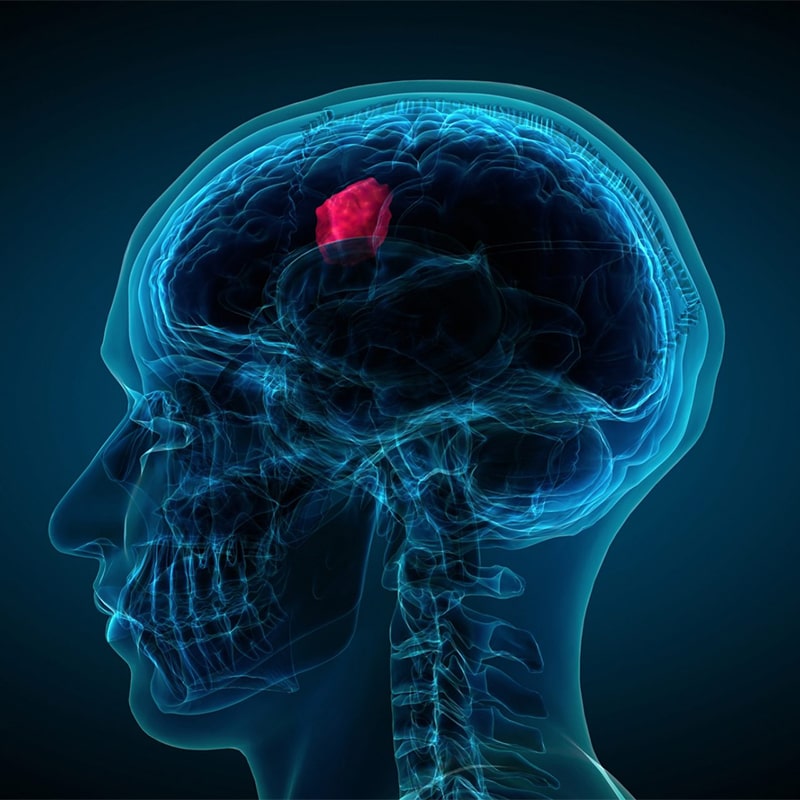How Isolation Can Affect Cognitive Function

September 17, 2021
Social isolation and lack of stimulation can cause significant stress, leading to depression and problems with cognitive functioning — or mental processes such as perception, memory, processing information, reasoning and judgment. And because the pandemic is not a usual situation, many people may not be able to use their normal coping strategies.
“We’re seeing an increase in patients who are reporting problems with memory, shorter attention span, difficulty concentrating and trouble articulating their thoughts,” said Elizabeth Kera, PhD, neuropsychologist and division director of Psychology at the Hackensack University Medical Center Neuroscience Institute.
According to Dr. Kera, anyone can experience cognitive decline during times of stress. However, people who are older or living with a neurological illness or mood disorder are more vulnerable.
But the good news is that there are a few things you can do to prevent and treat problems with cognitive functioning, including:
- Support cognitive health through physical health.
You might think that habits such as getting restorative sleep, consuming a balanced diet and exercising regularly only support physical health, but the truth is that these practices support cognitive health, too.
“Trouble sleeping due to stress or anxiety, a more sedentary lifestyle, or a fear of going to the grocery store may make it more difficult for people to maintain physical health during this time,” said Dr. Kera. “However, it’s important to find alternative ways to care for physical needs to promote cognitive health.”
A few suggestions include reducing stress using mindfulness or meditation, starting a home exercise program, or getting fresh, healthy foods through grocery delivery.
Dr. Kera said exercise is especially critical because it stimulates the production of brain-derived neurotrophic factor (BDNF), a protein that prevents neurodegeneration. Hormones released during exercise also promote neuroplasticity, enabling the brain to adapt to new circumstances and experiences.
- Find ways to stay connected.
If you are missing interaction with others, it may be necessary to create a schedule to check in with friends and family members.
“Staying connected via Skype or over the phone, or playing games together online, can boost physical, cognitive, and mental health,” said Dr. Kera.
- Exercise your brain.
Challenging your brain with card games, strategy games and word puzzles can improve cognitive functioning. There are even websites that are exclusively devoted to brain games.
“Just as you need to exercise your physical body to stay healthy and strong, you also need to exercise your brain,” said Dr. Kera. “During these unprecedented times, you may need to step outside the box to maintain physical, mental and cognitive health.”
- To when to seek help.
Dr. Kera said that people should seek help for pandemic-related cognitive decline if they notice any change in their level of functioning.
“If you misplace your keys and can’t find them, it may not be a big concern. But if you are noticing a pattern of missing appointments, making mistakes at work, having trouble remembering to pay your bills or having persistent difficulty with tasks that you never struggled with before, you should see a health care provider,” said Dr. Kera.
Sometimes, people who are struggling at home, at work, or in their relationships may also be dealing with depression or anxiety, which can make the problem worse. They should seek professional treatment.
‘A Multifaceted Approach’
According to Dr. Kera, preventing and treating pandemic-related cognitive decline requires a multifaceted approach.
“If you only focus on one aspect of treatment or prevention, the problem may not improve,” said Dr. Kera. “If you see a professional, and identify areas of weakness, there are more formalized treatments that can help. Cognitive rehabilitation therapy can benefit certain individuals experiencing cognitive decline, particularly those who have a neurological illness.”
Because we live in an age of technology, Dr. Kera stressed that help is more accessible than ever.
“Health professionals are now offering telehealth visits, and there are treatment programs and support groups that can provide people with virtual avenues for cognitive and social stimulation,” said Dr. Kera. “If you’ve been having symptoms of cognitive decline and they aren’t getting better, it is important to seek the help. Many people are scared to do so because of the pandemic, but it is more important than ever before to pay attention to these symptoms.”
Dr. Brian Amorello is a counseling psychologist at the Neuroscience Institute.. He adds that one of the additional benefits to Dr. Kera’s suggestion is that all would improve our overall mental health as well. Since the pandemic began, there’s been an increase in overall depression, anxiety, and stress. This is likely due to us not being able to see loved ones in person and be in places we enjoy. Activities such as virtual gatherings, meditation, and exercise provide us with the necessary behavioral activation not only to strengthen cognitive function, but also improve our overall mood.
The material provided through HealthU is intended to be used as general information only and should not replace the advice of your physician. Always consult your physician for individual care.
Find a doctor near me
Find a doctor near me

Overcoming Quarantine Anxiety
If you are feeling anxious or burnt out from COVID-related stress and isolation, you aren’t alone.

Benign vs. Malignant Brain Tumors
The terms benign and malignant are used broadly when identifying tumors. But there's nothing simple about either when they occur in the brain, the most complex organ in the human body. Learn more.

Dementia vs. Alzheimer’s Disease
Many people who are caring for an aging relative struggle to understand the key signs and differences between dementia and Alzheimer's. Our geriatric expert explains.

5 Questions to Ask Your Physician at an Annual Physical Exam
Getting an annual physical exam is an important step in staying healthy. It’s an opportunity to touch base with your primary care physician while you are healthy so you can stay that way.
